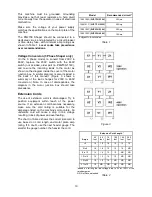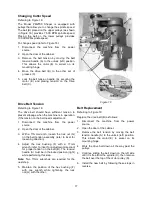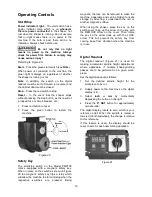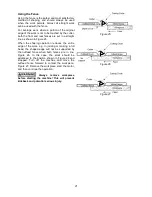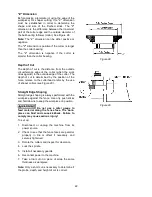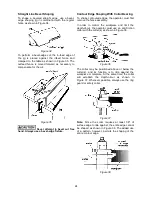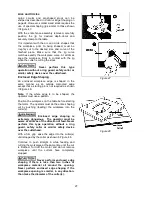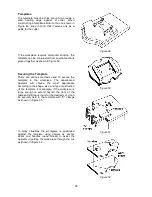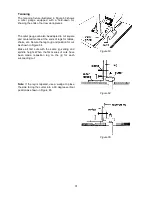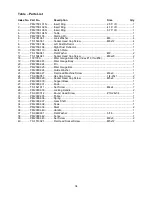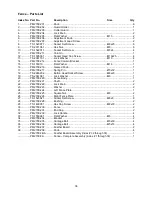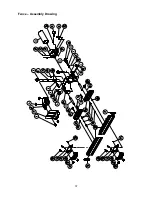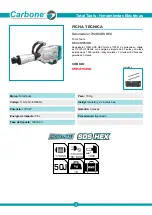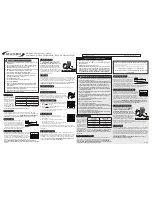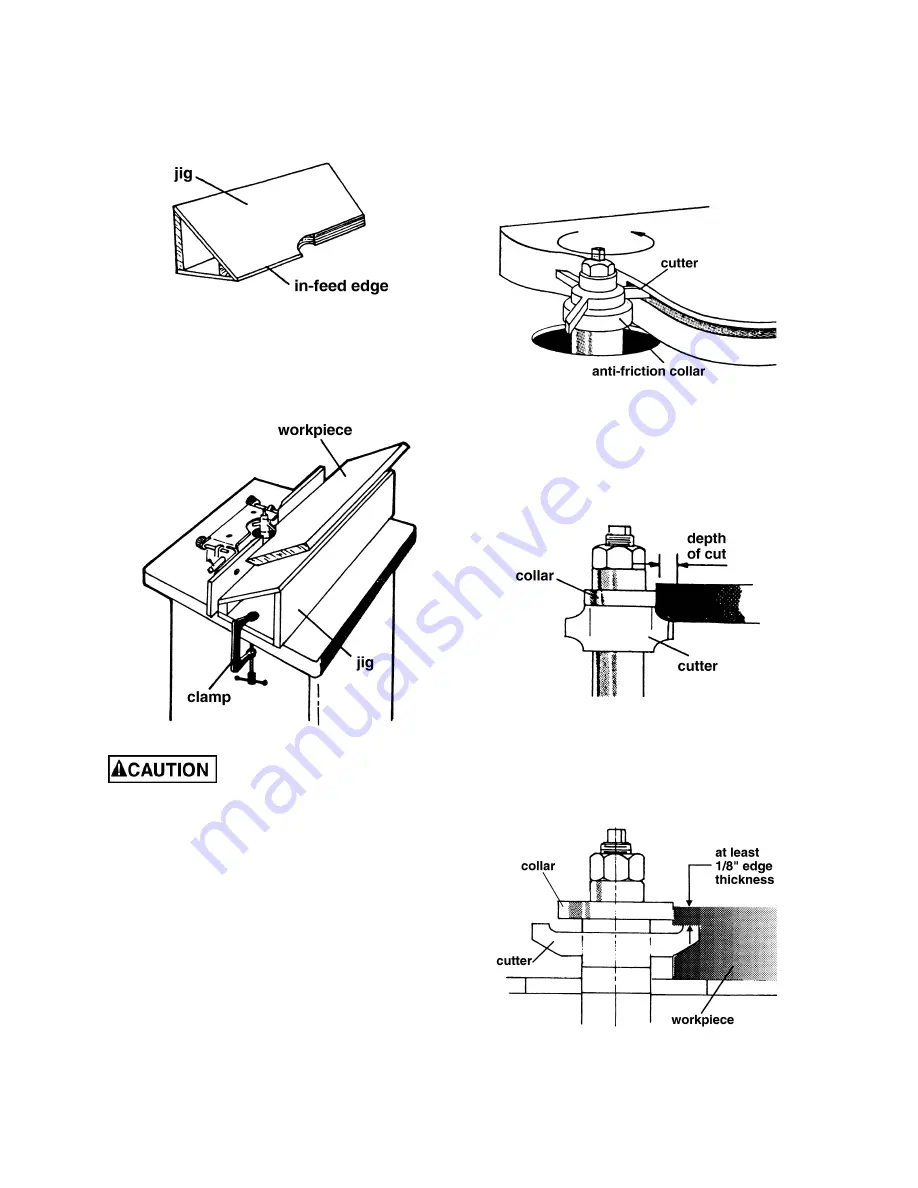
24
Straight Line Bevel Shaping
To shape a beveled straight edge, use a bevel-
edge shaping jig in combination with the regular
fence as shown in Figure 34.
Figure 34
To perform a bevel-edge cut, the in-feed edge of
the jig is placed against the infeed fence and
clamped to the table as shown in Figure 35. The
outfeed fence is moved forward as necessary to
compensate for the cut.
Figure 35
Never attempt to bevel cut free
hand. Always use a bevel-edge fixture.
Contour Edge Shaping With Collar Bearing
To shape contoured edges, the operator must first
remove the fence assembly.
In order to control the workpiece and limit the
depth-of-cut, the operator must use an anti-friction
collar with the cutter(s) as shown in Figure 36.
Figure 36
The collar may be positioned above or below the
cutter(s), and its function is to ride against the
workpiece or template. At the same time, the collar
will establish the depth-of-cut as shown in
Figure 37. Whenever possible, always use the ring
guard or safety collar.
Figure 37
Note:
Since the collar requires at least 1/8" of
surface edge to ride against, the entire edge cannot
be shaped as shown in Figure 38. The added use
of a pattern, however, permits the shaping of the
entire contour edge.
Figure 38
Summary of Contents for 2700
Page 35: ...35 Table Assembly Drawing ...
Page 37: ...37 Fence Assembly Drawing ...
Page 41: ...41 Elevator Assembly Drawing ...
Page 43: ...43 Caster Assembly Drawing ...
Page 45: ...45 Spindle Assembly Drawing 1 1 4 Spindle 3 4 Spindle 1 Spindle 1 2 Spindle 30mm Spindle ...
Page 48: ...48 Cabinet and Base ...

